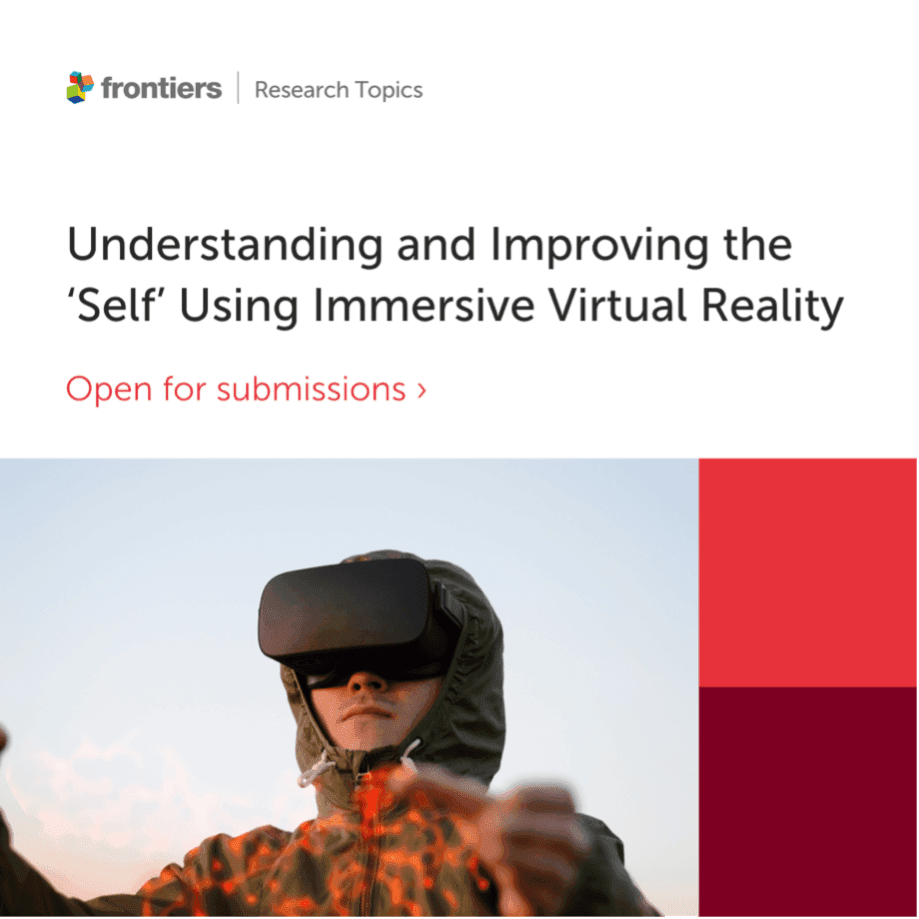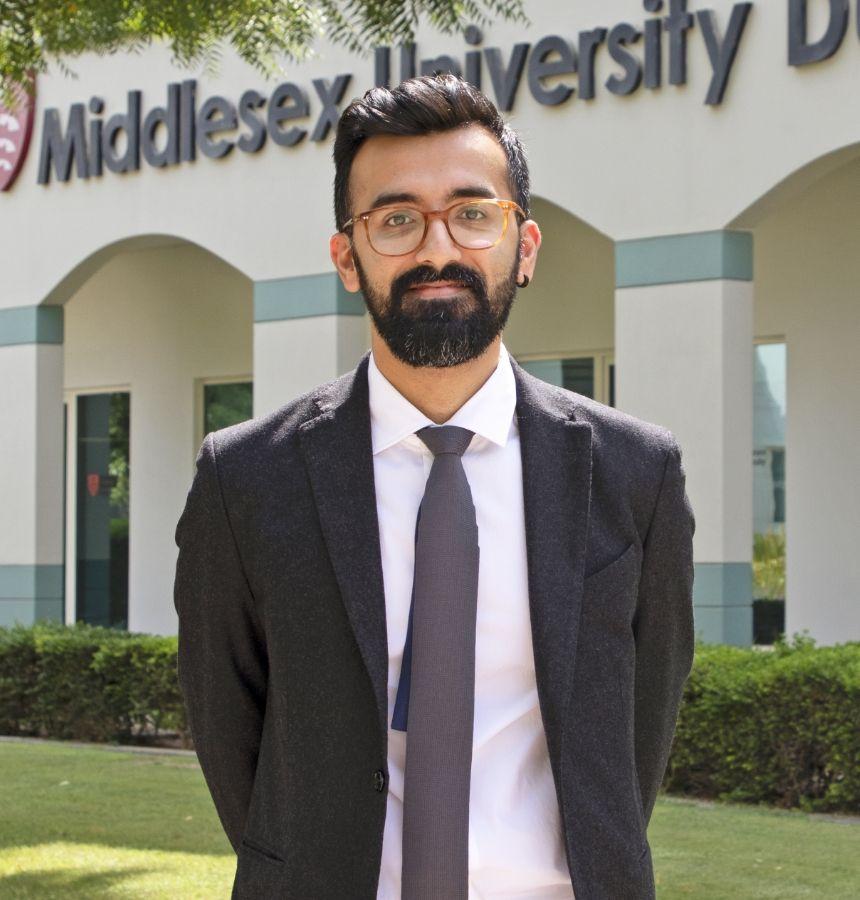Guest editing for research topic published in Frontiers in Virtual Reality

The Immersive VR lab, in collaboration with Dr. Nishtha Lamba, head and founder of the Social Psychology Research Lab at Middlesex University Dubai, recently had a research topic for guest editing accepted in the journal, Fronters in Virtual Reality. This research topic is in collaboration with Dr. Domna Banakou from NYU Abu Dhabi and Dr. Sofia Seinfeld from the Polytechnic University of Catalonia, Spain.
The title of this topic is “Understanding and Improving the ‘Self’ Using Immersive Virtual Reality”
Guest Editors: Dr. Sameer Kishore, Dr. Nishtha Lamba, Dr. Domna Banakou, Dr. Sofia Seinfeld
This topic aims to develop research related to generating new knowledge and developing interventions where virtual reality can be used to somehow improve the ‘self’. These can include treatment of phobias and mental health disorders, studies related to positive psychology, improving wellbeing, or learning new skills.
More information and submission guidelines can be found here: https://www.frontiersin.org/research-topics/50472/understanding-and-improving-the-self-using-immersive-virtual-reality
Dr. Sameer Kishore featured in Wired Magazine Middle East discussing treatment of phobias using Virtual Reality

Dr. Sameer Kishore was recently featured in an article published in Wired magazine Middle East, where the use of virtual reality technology to treat phobias was discussed. The article covered why the technology is so effective, how it can be used practically, and what the future holds. It was in the print edition as well as online.
https://wired.me/gear/virtual-reality-is-helping-people-overcome-their-phobias/
Dr. Sameer Kishore's PhD work featured in Prestigious Exhibition "Brain(s)" at the Centre of Contemporary Art and Culture, Barcelona

The Museum of Contemporary Art and Culture in Barcelona (Centre de Cultura Contemporània de Barcelona) has featured the Ph.D. work of Dr Sameer Kishore at its exhibition titled “Brain(s)” (Open from July 27 – December 11).
This exhibition explores both the anatomy of the brain and everything that it generates: consciousness, abstract thinking, language, imagination, dreams, and memory. Curated by physicist and biologist Ricard Solé and by Emily Sargent, curator of the Wellcome Collection, the exhibition presents some 300 pieces including 17 contemporary immersive art installations and audio-visual works, pieces from historical collections (including work by René Descartes and Santiago Ramon y Cajal) and the results of projects of scientific research into the brain.
Sameer’s work that is featured was carried out during his PhD at the EventLab in the University of Barcelona. The humanoid robot that he used to develop the telepresence system is on display, along with several videos of the system in action, including news clips by the BBC (UK).
Research exploring impact of instructors’ gender and race on perceived learning presented at 10th European Conference on Education, London

In collaboration with Dr. Nishtha Lamba, head and founder of the Social Psychology Research Lab at Middlesex University Dubai, and Ms. Olga Khokhlova, research associate at the Social Psychology Research Lab, a study was carried out and later presented at the 10th European Conference on Education, held at UCL, London, UK from July 14 – 17. The study explored impact of instructors’ gender and race on perceived learning in higher education, using virtual avatars.
Collaborative research project by Dr. Sameer Kishore titled: ‘A Virtual Reality Embodiment Technique to Enhance Helping Behavior of Police Toward a Victim of Police Racial Aggression’ published in Presence journal

Dr. Sameer Kishore and his co-authors have had their paper titled ‘A Virtual Reality Embodiment Technique to Enhance Helping Behavior of Police Toward a Victim of Police Racial Aggression’ published in Presence: Virtual and Augmented Reality. It’s one of the oldest journals focusing on research related to VR/AR.
This project which started out in 2018, was carried out by Sameer with his former colleagues at University of Barcelona, and in collaboration with Google (specifically Jigsaw, a “think tank” that works towards using tech for social good). The project used Virtual Reality with police officers at an inner-city police department in the US to investigate and develop innovative methods for tackling implicit racial bias. The results are promising and provide further evidence of how VR could be effectively used towards creating societal change.
Kishore, S., Spanlang, B., Iruretagoyena, G., Halan, S., Szostak, D., & Slater, M. (2021). A Virtual Reality Embodiment Technique to Enhance Helping Behavior of Police Toward a Victim of Police Racial Aggression. PRESENCE: Virtual and Augmented Reality, 28, 5-27. https://doi.org/10.1162/pres_a_00339
You can read/download the full paper and access accompanying video using the following links:
Link to publication: https://direct.mit.edu/pvar/article-abstract/doi/10.1162/pres_a_00339/106763/A-Virtual-Reality-Embodiment-Technique-to-Enhance?redirectedFrom=fulltext
Link to full paper: http://publicationslist.org/data/melslater/ref-379/pres_a_00339.pdf
Link to accompanying video (Warning: Strong, but realistic language): https://www.youtube.com/watch?v=tb9QAUkZWic










